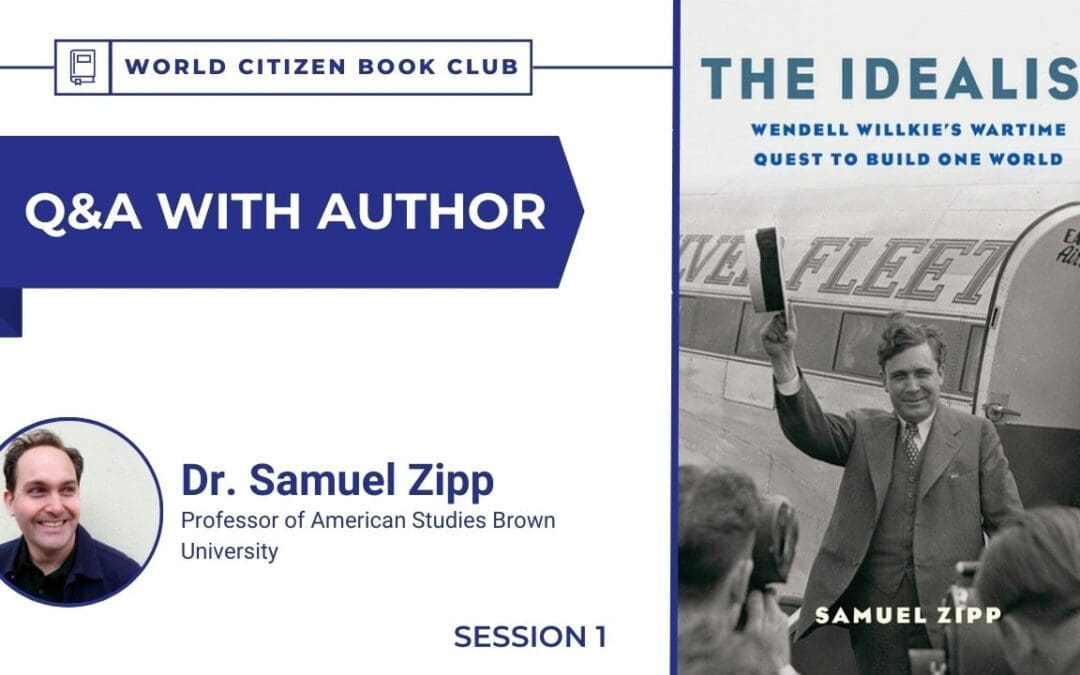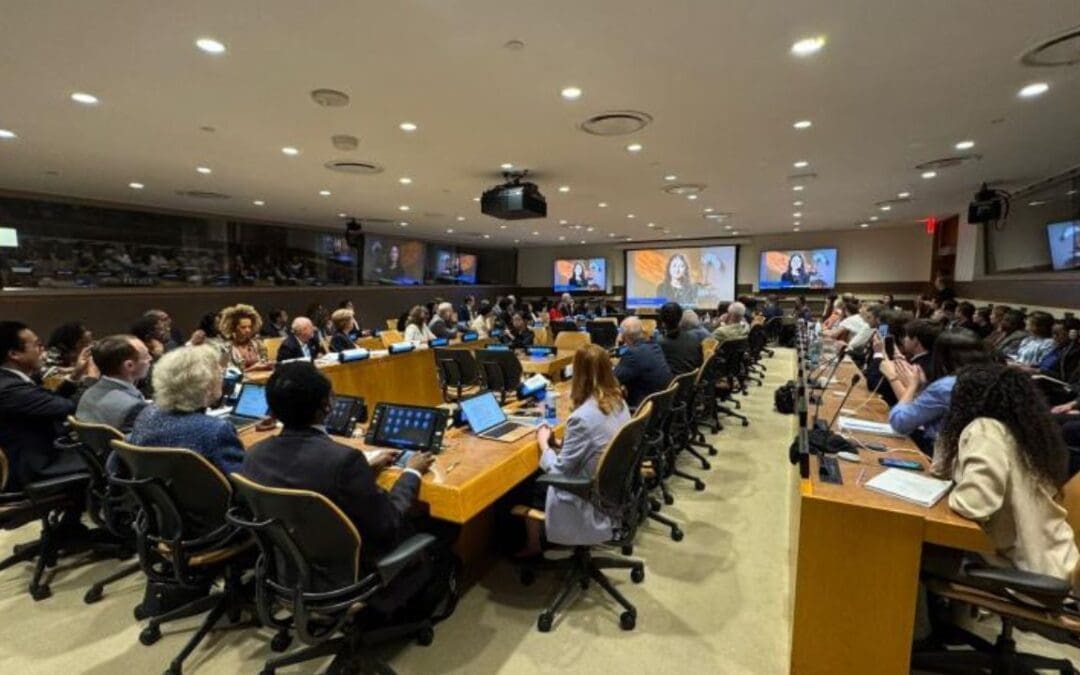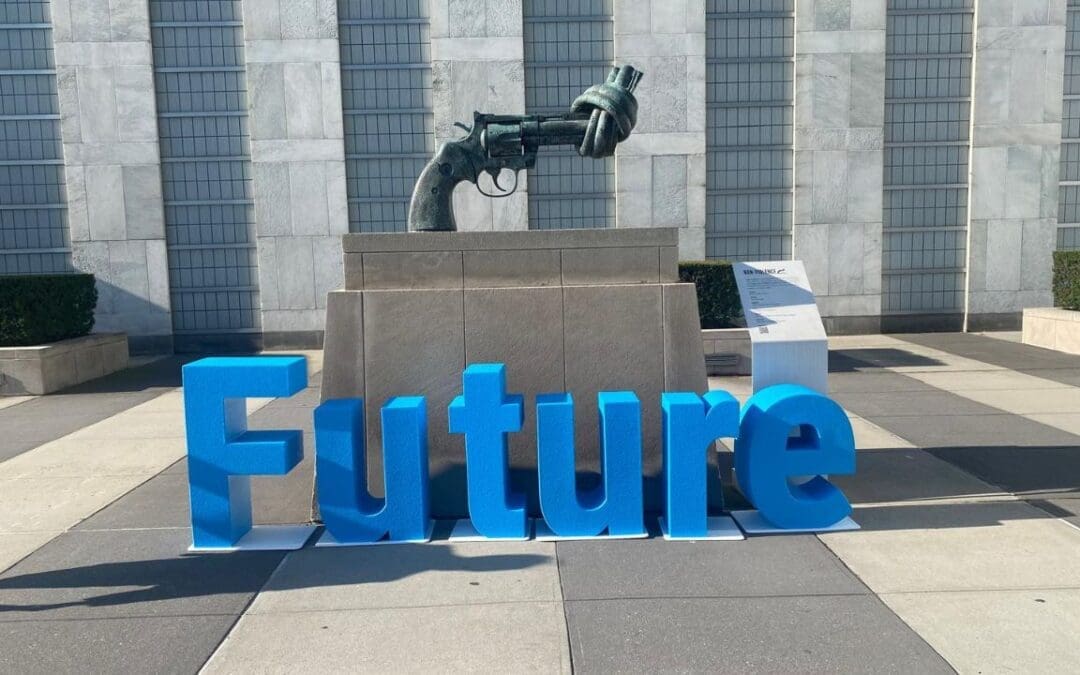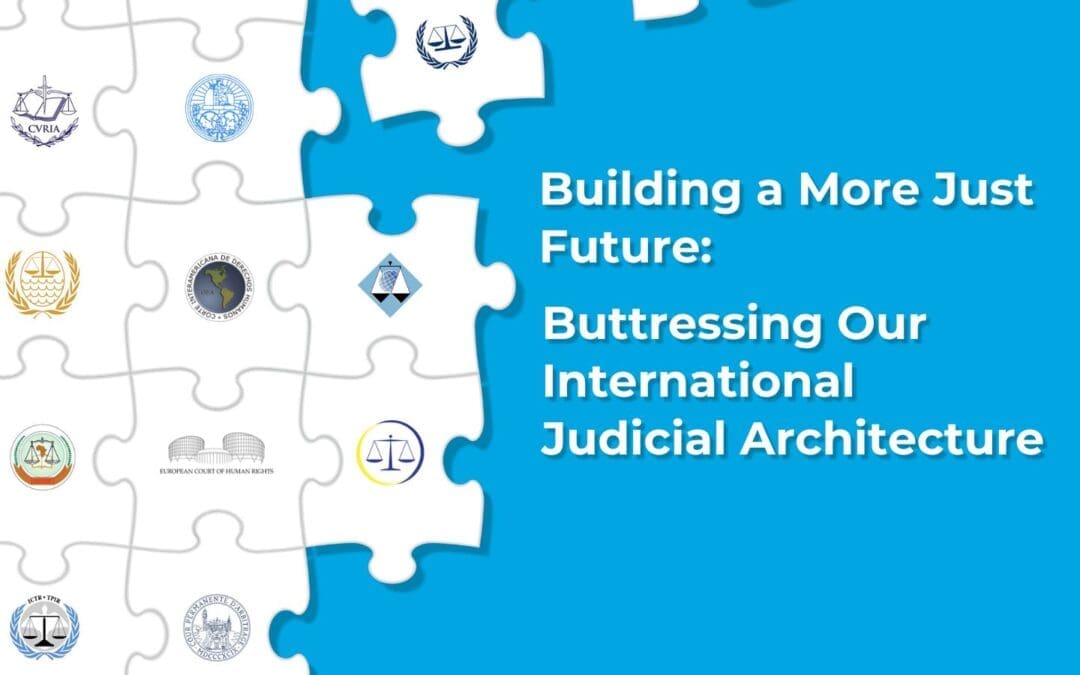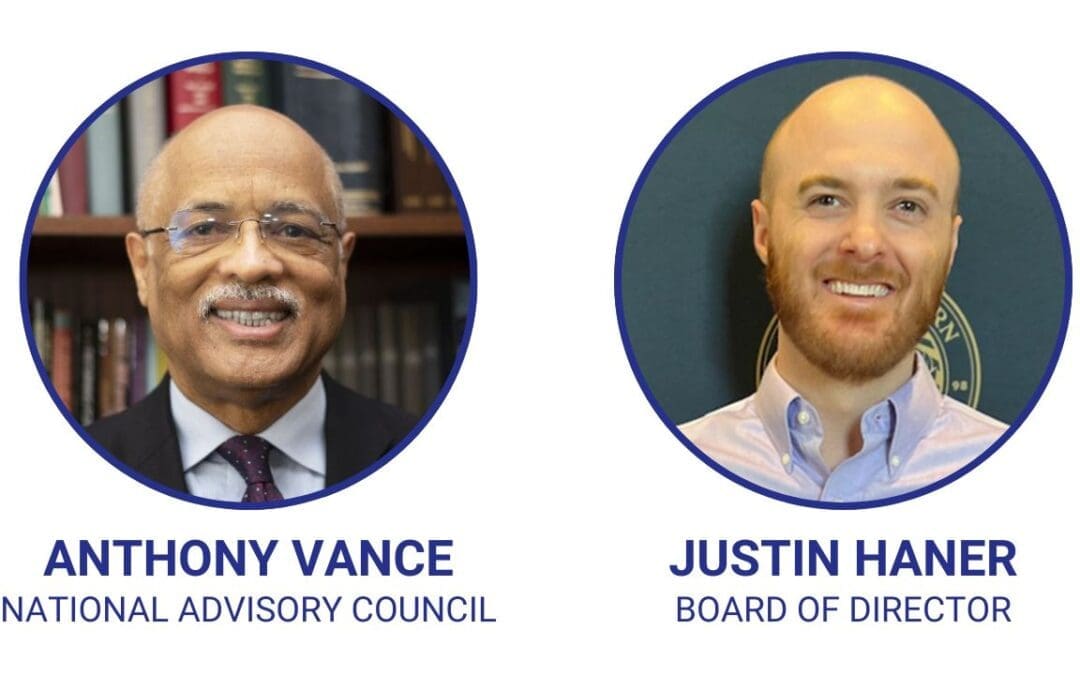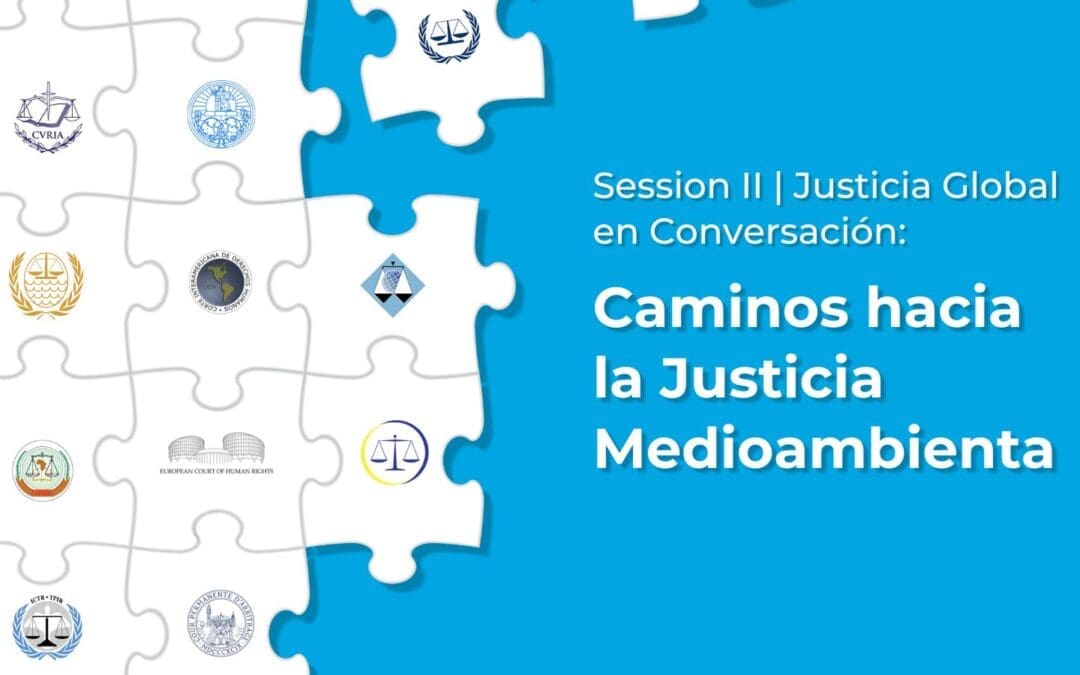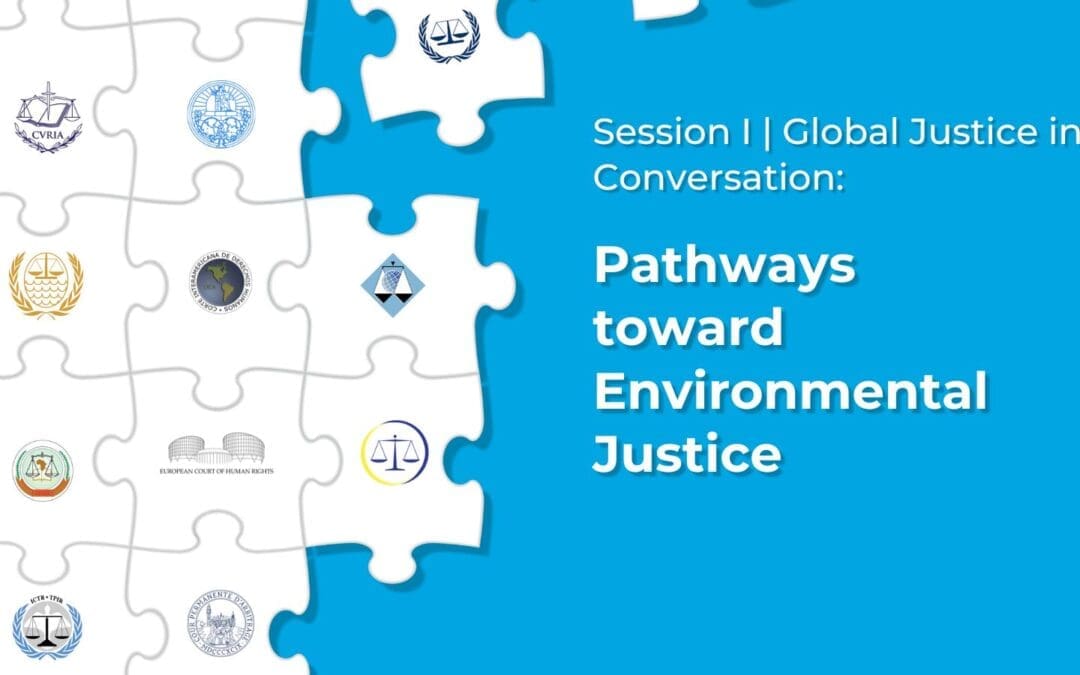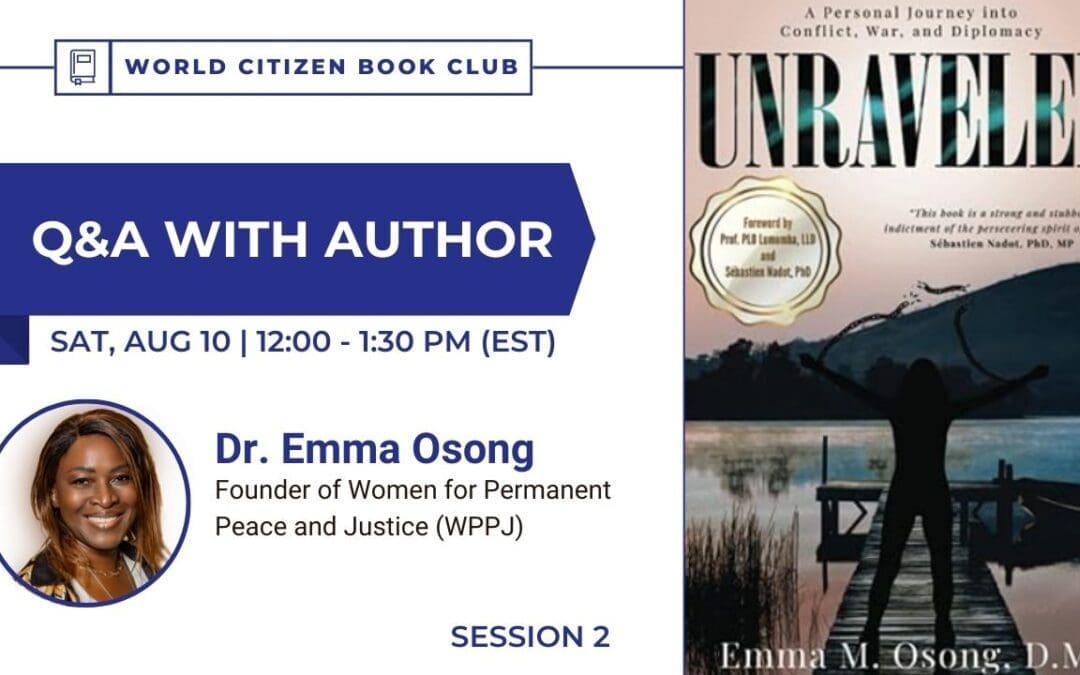
by CGS | Sep 23, 2024 | Past Event
Watch the first of two sessions where we explore pages 1 – 172 (Chapters 1 – 9) with the author, Dr. Samuel Zipp.
In August 1942, as the threat of fascism swept the world, a charismatic former Republican presidential contender, Wendell Willkie, took an unprecedented airplane journey around the world to visit battlefronts in Africa, the Middle East, Russia, and China. In One World, the runaway bestseller he published on his return, Willkie challenged Americans to resist the “America first” doctrine and warned of the dangers of “narrow nationalism”. He urged citizens to end colonialism and embrace, “equality of opportunity for every race and every nation”. Zipp argues that Willkie’s “warnings about the perils of racially charged ‘narrow nationalism’ have never been more indispensable. As the United States reaches the end of its long turn as a great global power, the quandaries of American exceptionalism he faced remain ours today, and his example may yet offer us undiscovered resources for living in a ‘one world’ he heralded more than three-quarters of a century ago.”
“The term Willkie helped to put into common circulation -’one world’ –would become shorthand for the disruptive charge of worldly connection set off by the war. Over the years Willkie’s name would fade away but ‘one world’ would be adopted by world government advocates, anti-imperialists, environmentalists, and even corporate marketers to signify the promise of times in which global shrinkage offered new contracts and new ideas to offset the dangers of war, xenophobia and racism.”
Samuel Zipp is a cultural and urban historian at Brown University. He has written for the New York Times, the Washington Post, n+1, The Baffler, and The Nation and is the author of Manhattan Projects: The Rise and Fall of Urban Renewal Cold War New York. He also coedited a collection of the writings of Jane Jacobs.

by CGS | Sep 22, 2024 | Past Event (External)
CGS co-sponsored this Side Event for the Summit of the Future Action Day hosted by the Baha’i International Community.
At moments of profound crisis, optimism is a precondition for success. This rapid-fire roundtable is a platform to energize participants to take the first next steps towards better global governance.
Representatives from Member States, the United Nations System, and Civil Society concurrently express hope and concern, encouragement and hesitation, optimism and doubt regarding the Summit and its outcome documents, including the Pact for the Future. Hundreds of recommendations have been directed toward the Pact and its related processes, representing significant consensus around the need for change. Yet, success will be measured by how this Summit is able to prevent and respond to complex and growing risks. The challenges are well-known, yet it is hope and a commitment to the wellbeing of humanity, ultimately, that will sustain our efforts. We need a shared, optimistic narrative, alongside a sophisticated understanding of the challenges we face, in order to overcome inaction. As was learned at the UN Civil Society Conference in Nairobi, this is a prerequisite on the path toward a future of peace and prosperity.
Far from an exercise in idealism, the aim of this event will be to highlight and connect common aspirations and concrete suggestions in order to catalyze future action beyond the Summit itself. This event, to be hosted during the Action Days of the Summit of the Future, will provide an opportunity for Member State representatives, UN officials, and Civil Society actors to contribute to a narrative built on evidentiary optimism. Representatives from various areas of the international system will share what it is from the Pact for the Future that brings them hope in the face of the very real challenges before us. They will offer their reflections and reasons for optimism, highlighting one or two actions that they think have particularly strong potential and proposing next steps to take that action forward.
Side Event organized by: United Nations Futures Lab, United Nations University Center for Policy Research, Permanent Mission of Chile to the UN, Permanent Mission of Vanuatu to the UN, Baha’i International Community, Buddhist Tzu Chi, Citizens for Global Solutions, Climate and Sustainability, Climate Governance Commission, Club de Madrid, Coalition for the UN We Need, Foundation for European Progressive Studies, Geledes, Global Governance Forum, Global Governance Innovation Network, GWL Voices, International Alliance of Women, International Environment Forum, Oxfam International, Pathfinders for Peaceful Just and Inclusive Societies, Plataforma CIPO, Project Starling, SDGs Kenya Forum, Stimson Center, World Federalist Movement

by CGS | Sep 21, 2024 | Past Event (External)
CGS co-sponsored this Side Event for the Summit of the Future Action Day hosted by the ImPACT Coalitions.
The UN’s Summit of the Future in New York adopted a PACT for the Future which includes a chapter on the transformation of global governance. This side event during the UN’s Action Days ahead of the Summit is a space to learn about and discuss proposals in this field put forward by a number of ImPACT Coalitions to build on the outcomes of the Summit and continue fulfilling a vision for renewed global governance in the coming years.
How to build on the seeds planted in the PACT to continue addressing the planetary emergency, inequitable distribution of power, lack of inclusion, continued violations of peace and disarmament goals, and gaps in accountability and the rule of law? Where is a need to go further? The event will addresses future pathways to bring about a more effective, accountable and inclusive global governance architecture.
Program outline
Introductory remarks
- Mark Malloch Brown, advisor, Bretton Woods at 80 initiative, former UN Deputy Secretary-General; former UK State Minister
Firestarters from ImPACT Coalitions featuring:*
- Global Citizens’ Assembly and a UN Parliamentary Assembly: Aishwarya Machani, Iswe Foundation;
- promoting international courts and tribunals for accountability under international law, Rebecca Shoot, Citizens for Global Solutions
- UN declaration of planetary emergency, Planetary Emergency Platform and the Creation of a Global Environment Agency, Maja Groff, Climate Governance Commission
- UN Charter review conference: Natalia Nahra, UN Charter Reform Coalition
Reactions
- Mary Robinson, Chair of The Elders, Lead Co-Chair of the Climate Governance Commission, and Former President of Ireland
- Meena Syed, Director for UN Policy, Norwegian Ministry of Foreign Affairs
Wrap-up and way forward
Moderated by Heba Aly
This Side Event was organized by: ImPACT Coalition on Inclusive Global Governance; UN Charter Reform Coalition; ImPACT Coalition on Just Institutions and the International Criminal Court; Earth Governance ImPACT Coalition; ImPACT Coalition on The International Anti-Corruption Court; Government of Norway; Coalition for the UN We Need; Global Governance Innovation Network.
- Global Citizens Assembly: Folly, Maiara, Aishwarya Machani, Andrea Ordóñez Llanos, and David Steven. 2024. Strengthening Citizen Participation in Global Governance. United Nations Foundation, Iswe Foundation, Plataforma CIPÓ, Blue Smoke, Southern Voice (download).
- UN Parliamentary Assembly: Brauer, Maja, and Andreas Bummel. 2020. A United Nations Parliamentary Assembly: A Policy Review of Democracy Without Borders. Berlin: Democracy Without Borders (download)
- a UN declaration of planetary emergency, Planetary Emergency Platform and the Creation of a Global Environment Agency, and other recommendations of the Climate Governance Commission; 2023 Report, Governing Our Planetary Emergency (download) and Tackling the Planetary Emergency: Supporting a Declaration of Planetary Emergency at the UN General Assembly and the Convening of a Planetary Emergency Platform (download), Published by MEGA on August 19, 2024
- Promoting international courts and tribunals: Legal Alternatives to War (LAW not War), a global campaign to increase the use and effectiveness of the International Court of Justice and to achieve universal acceptance of its jurisdiction.
- A UN Charter Review conference: Policy Brief from the UN Charter Reform Coalition

by CGS | Sep 20, 2024 | Past Event
A Side Event in conjunction with the UN Summit of the Future by the ImPACT Coalition for Just Institutions and the International Court of Justice, convened by Citizens for Global Solutions. International law is the foundation on which a renewed effective multilateral system should function. International courts and tribunals have never been busier. And yet, we all are profoundly aware that atrocities continue in nearly every region. The international adjudication system is a continuous evolutionary process. Genuine commitment to this process is critical to realize the aspirations of the UN system: foremost the peaceful and just resolution of conflicts and end to impunity for atrocities. This side event will begin with a recognition of the successes of international judicial institutions as indispensable elements of the global peace and security architecture. We welcome the commitment to comply with the decisions of the International Court of Justice (ICJ) and the inclusion of atrocity crimes, including the Crime of Aggression, as critical priorities included in the Pact for the Future. At the same time, this enterprise must entail a critical analysis of the shortcomings of the global judicial architecture and the need for continuous support to realize the ambitions of the UN Charter and the promise of “never again.”
An esteemed panel will consider the innovations and advancements of the International Criminal Court, the ICJ, and other courts and tribunals. An interactive dialogue will explore what should come next to achieve the full universality and effectiveness of these institutions, and to confront threats to their independence and integrity as indispensable elements of the global peace and justice architecture beyond the Summit of the Future.
Speakers
Jim Goldston, Executive Director, Open Society Justice Initiative
Jocelyn Getgen Kestenbaum, Professor of Law at the Benjamin N. Cardozo School of Law and Director of the Benjamin B. Ferencz Human Rights and Atrocity Prevention Clinic and the Cardozo Law Institute in Holocaust and Human Rights.
Matias Hellman, Acting Head of Outreach, International Criminal Court (ICC)
Akila Radhakrishnan, Senior Advisor, Atlantic Council, former Executive Director, Global Justice Center
Jennifer Trahan, Clinical Professor, NYU Center for Global Affairs, and Director of their concentration in Human Rights and International Law; Convenor of the Global Institute for the Prevention of Aggression
Rebecca A. Shoot, Executive Director, Citizens for Global Solutions

by Lawrence Wittner | Sep 18, 2024 | Global Justice
Are the nations of the world doomed to go on fighting the brutal, horrifying wars that have long characterized human history?
We might well wonder about that as we watch, aghast, while Israeli armed forces slaughter thousands of Palestinian civilians, Russian military might relentlessly pounds Ukrainian towns and cities into rubble, and new, bloody wars erupt in numerous other lands.
Why does such widespread destruction and human suffering persist in the modern, ostensibly “civilized,” world?
A variety of explanations have been advanced. Some observers point to capitalism, others blame dictatorial rule, while still others place the onus on xenophobia, religious differences, racism, and toxic masculinity.
Each of these factors has some weight. Certainly greed, authoritarian arrogance, inflamed nationalism, religious and racial animosities, and male violence have played some role in dividing people and, thereby, fostering wars among them over the course of history.
But are these factors sufficient to explain the stubborn persistence of war? After all, wars existed long before the advent of capitalism and, furthermore, since then, non-capitalist (for example, Communist) nations have repeatedly waged wars, even against one another. Similarly, democratic nations have plunged regularly into numerous wars, some against their fellow democracies. Moreover, even countries whose populations have friendly ties, have the same racial composition and religion, and have taken major strides toward gender equality (including admission of women to the armed forces and top posts in government) seem quite willing to prepare for and engage in war with each other.
Something is clearly missing from these explanations of widespread international violence―something fundamental. Could it be the structure of international relations?
International relations specialists have long argued that the driving force behind international war is global anarchy. Humanity, like war, has existed for thousands of years. But, although humans have gradually created governments to establish effective laws regulating behavior within their territories―regions, cities, states, and, ultimately, nations―they have failed to do so for the world. Thus, on the global level, nations have been left largely to their own devices. The resulting situation resembles the American Wild West, characterized by the absence of law enforcement and the prevalence of heavily armed gangs.
For centuries, scholars have pointed to the need for creating transnational structures to end this global nightmare. The theologian and diplomat Hugo Grotius helped develop the concept of international law, while writers such as Dante Alighieri, Immanuel Kant, and H.G. Wells promoted the idea of global governance.
After the atomic bombing of Japan and the ensuing scramble for nuclear weapons starkly revealed the peril of nuclear annihilation, the call for a full-scale transformation of international relations became even sharper. Albert Einstein, the chair of the Emergency Committee of Atomic Scientists, stated bluntly: “Mankind’s desire for peace can be realized only by the creation of a world government.”
Norman Cousins, editor of one of America’s major magazines of the era (the Saturday Review), played a key role in channeling Einstein’s call into a postwar campaign for a global federation of nations. “The only security for Americans today, or for any people,” Cousins contended, is “a system of world order that enables nations to retain sovereignty over their own cultures and institutions but that creates a workable authority for regulating the behavior of nations in their relationships with one another.” Cousins served as president of United World Federalists (which morphed into the World Federalist Association and, eventually, Citizens for Global Solutions), the U.S. member organization of the World Federalist Movement.
Benjamin Ferencz, the U.S. prosecutor at the Nuremberg War Crimes Trials of the late 1940s, became an important popularizer of this world federalist approach. In his widely-read book, PlanetHood, Ferencz told Americans that, in the United States, “we have four layers of government: city, county, state, and national,” created “to avoid anarchy within our nation.” Thus, adding “one more layer of government will enable us to have an abundant future on this planet.” Indeed, “international governance―something like a United Nations of the World―will rescue us from our deadly predicament.”
Critics, of course, might argue that a United Nations already exists, and has often proved unable to prevent the recurrence of war. But Ferencz’s answer―and, usually, the answer of the world federalist movement―was that, although the United Nations had significant accomplishments to its credit, the UN Charter “was deliberately made weak” by the major powers. As a result, it “did not give the United Nations the binding strength needed to get rid of international lawlessness.” Ultimately, “the only way to permanently solve the problem of war is to replace the Law of Force with the Force of Law.” This perspective led, in recent years, to the establishment of the LAW not War campaign, designed to promote the universality of the International Court of Justice.
World federalists can also point to a dramatic decline in war when independent nations accepted limitations on their sovereignty. In the late eighteenth century, as 13 British North American colonies gained their independence, they could have followed the usual global pattern of war with one another. But, instead, they gradually created a federal union (the United States) and fought only one war within their ranks during the following 235 years. Similarly, although European nations had undergone centuries of war with each other before they went at it again in World War II, members of the European Union, formed in the aftermath of that devastating war (and now encompassing 27 nations), succeeded in ending war among them.
The issue of transcending the ages-old practice of international war certainly remains relevant today. Indeed, the United Nations is moving forward with plans for a Summit of the Future in late September. Designed to address “global governance,” among other issues, the Summit provides yet another opportunity for nations to empower the world organization to maintain international peace through the enforcement of world law.
Is that goal realistic? Perhaps so, perhaps not. But how realistic is it to continue the anarchy of nations, which today threatens universal death and destruction?
Image source: https://www.asymmetricalhaircuts.com/episodes/in-memoriam-benjamin-b-ferencz/

by Sovaida Maani Ewing | Aug 30, 2024 | Peace
The intensifying cascade of global crises including intractable wars, massive human rights atrocities, nuclear proliferation, climate change and environmental degradation, the growing inequality between the rich and the poor, recurring bouts of global financial instability, and the increasing risks of pandemics to name but a few, call to mind the warning sounded by Arnold Toynbee, one of the most highly-regarded authorities and foremost experts on international affairs and world history in the 20th century, that humanity would be faced with an existential crisis followed by his recommendation as to what we, the family of nations, should do in response.
Toynbee contended that in the atomic age, humanity would have to choose between political unification and mass suicide. He believed the chief obstacle to political unification was a long-standing destructive habit of the West which he referred to as the habit of “divisive feeling” to which we tended to easily succumb as opposed to reaching for our more recently-adopted habit of “world-mindedness.” The good news he said was that just as new habits could be adopted, old ones could also be modified or abandoned. He stressed that as a general rule, we humans would opt to abandon even our most deeply-rooted habits once it became clear that clinging to them would spell disaster.
He recommended that we replace our outworn habit of divisive feeling with a new habit of common action on a worldwide scale through the creation of some form of limited world-state that would be empowered to act in humanity’s collective interest in certain narrow fields of endeavor. Already, as far back as the 1970’s he believed that the global community needed to engage in common action on a world-wide scale in at least two areas: to control atomic energy through a World Authority and to administer the production and distribution of food through another World Authority. Now, just over fifty years hence, we can confidently add climate change to this list.
Toynbee predicted that global circumstances we unwittingly created through our technological advancements would eventually force us to submit to a limited world government once we realized it was our only hope for salvation in the face of an existential threat. He believed we would wait until the eleventh hour before making a radical shift to establish such a government even though we would do this kicking and screaming all the way.
He was very clear in recognizing our visceral fears about and knee-jerk reaction in opposition to a world government that might become a draconian centralized bureaucracy imposing its will on local governments around the world. He made the following compelling arguments to dispel these fears.
Firstly, a world government should be minimal and should be limited in its sphere of action. World leaders should therefore confine the authority of a world government they established only to that which was strictly necessary for their self-preservation right now.
Secondly, he stressed that in the atomic age, world government should come about voluntarily through the mutual consent and cooperation of world powers rather than through the use of force. He warned that any attempt to impose political unity by force would be ineffective as it would only lead to stiff resistance and a resurgent nationalism as soon as an opportunity to revolt presented itself.
Thirdly, the prerequisite for such an endeavor to succeed lies in the universal adoption of an ideology of world-mindedness that we had never achieved before.
Toynbee believed that the structure of a limited world state would likely be a federal one in which previously independent units would voluntarily come together in a global union. He argued that this was the most likely scenario given that states generally prefer to preserve their identity and retain their autonomy to act locally; they would likely be willing to cede power to a world government only in limited areas in which it served their collective interests to do so.
Lastly, he believed that humanity needed to forge some unity of thought as to what constituted right and wrong. In other words, it was necessary to adopt a shared set of moral values that would serve to harmonize the disparate social and cultural heritages that had evolved independently of each other over the course of human history. Without fundamental agreement on moral issues he argued, it would be difficult to achieve political unification.
Given the rapid disintegration of countries and societies around the world and the accelerating fragmentation and polarization that are rending apart the fabric of our global society, is it not time for us to step up and make the choice to collaborate, cooperate and deepen our integration as a global society? To this end is it not time we take a step in the direction of collective maturity by voluntarily consenting to political unification by forming a limited democratic federal world government? Imagine what we could achieve if we engaged in collective and consultative decision-making in order to meet the pressing needs and the greatest global challenges of our time as opposed to opting for what Toynbee coined the “Great Refusal” that would inevitably result in carnage and devastation on a scale never before seen.
Image source: rawpixel.com

by CGS | Aug 27, 2024 | Press Release
Washington, DC– Citizens for Global Solutions (CGS) is honored to announce Anthony Vance, Senior Representative, U.S. Bahá’í Office of Public Affairs joins our National Advisory Council (NAC).
Anthony oversees the development of the Bahá’ís of the United States Office of Public Affairs programs and strategic direction. He joined the office in 2010 after spending four years at the Baháʼí World Center in Haifa, Israel representing it to the diplomatic community, civil society, and parts of the host government. A lawyer by training, he spent 21 years in the U.S. Agency for International Development in legal and managerial positions in Washington, Côte d’Ivoire Kenya, Botswana, and Egypt. Mr. Vance holds a B.A. in Economics, an MBA, and a J.D. from Harvard University.
Larry David, Member, Executive Committee, CGS Education Fund Board of Directors said of Vance’s appointment, “The Baha’is and Citizens for Global Solutions have long-shared common goals relating to the need to replace an international system that allows for war with one which does not. The organizations are naturally allied. Anthony Vance’s joining the CGS Advisory Council underscores that informal alliance. CGS is fortunate to have an individual of Anthony Vance’s position and training advising its board and is strengthened by his decision.”
Dr. Justin Haner, Member of the Board of Directors
It is with great pleasure that Larry David also welcomes Justin to the Education Fund Board of Directors. Larry states, “Dr. Haner brings an academic perspective, deep preparation, and a thorough understanding of the history and scope of international law, its applications, and its shortcomings. We fellow board members are honored by Justin Haner’s choice to give volunteer service to support CGS and its focus on international peace and justice.”
Justin is a political scientist and research fellow at the Watson Institute for International and Public Affairs at Brown University. From traditional security concerns to artificial intelligence and cybersecurity, his scholarship focuses on the transformative power that international law and organizations can have on solving complex global and regional security issues. Committed to ensuring his work resonates beyond the classroom, he campaigns on the dire need to reform the United Nations, including as a co-drafter of the People’s Pact for the Summit of the Future and an active contributor to the Coalition for the UN We Need. Justin is also a committed public servant with twelve years of combined experience in the military and local government. As a former Captain in the US Army Infantry, he led a mechanized rapid reaction force just south of the Korean DMZ and was selected to serve as Executive Officer to the United Nations Command Honor Guard. He currently serves as an elected Representative for Town Meeting and appointed Capital Budget Committee board member in Walpole, MA, where he works on a variety of local issues from promoting racial and gender inclusivity, to reducing his town’s environmental impact.
About Citizens for Global Solutions
Citizens for Global Solutions is a non-governmental, non-profit, non-partisan membership-based organization that for more than 75 years has brought together a diverse collective of individuals and organizations with a common goal of a unified world predicated upon peace, human rights, and the rule of law. From championing ratification of the UN Charter upon our establishment in 1947 to supporting creation of the International Criminal Court (ICC) 25 years ago to advocating for global instruments to confront today’s enduring challenges of war and climate degradation, CGS recognizes that true progress is a generational enterprise. We invite like-minded individuals and organizations to join us in this mission.
Contact: outreach@globalsolutions.org

by CGS | Aug 21, 2024 | Past Event
Hay un reconocimiento amplio que el mundo enfrenta un momento de crisis medioambiental profunda. Aun así, la naturaleza existencial de esta amenaza puede dar una impresión falsa de que actores responsables no puedan ser identificados o que estén más allá del alcance de la justicia global. Recientemente, hemos visto desarrollos prometedores en el intento para lograr la responsabilidad por daños atroces a la humanidad y al planeta. Este evento se llevará a cabo en español solamente.

by CGS | Aug 21, 2024 | Past Event
The ImPACT Coalition on Just Institutions and the International Court of Justice (ICJ) hosted two webinars in cooperation with the ImPACT Coalition on Earth Governance exploring judicial pathways toward environmental justice. The ImPACT Coalitions were established as part of a civil society-led complement to the UN Summit of the Future process and tackle a diverse array of global governance issues.
To date, the ImPACT Coalition on Just Institutions and the ICJ has convened three webinars to raise greater awareness of the roles, successes, and interaction among international judicial institutions, and to support advocacy toward their greater universality and effectiveness.
This webinar addresses environmental justice issues. There is widespread recognition that the world faces a moment of profound environmental crisis. And yet, the existential nature of this threat may give a false impression that actors responsible cannot be identified or are beyond the arm of global justice. Recent years have seen hopeful developments in the attempt to achieve accountability for heinous harms to humanity and the planet.
These include: The advancement of both requests for Advisory Opinions and contentious cases on State responsibility for environmental degradation, including climate change, before the ICJ and International Tribunal for the Law of the Sea (ITLOS); Support for a new Crime of Ecocide to be included by amendment within the Rome Statute of the International Criminal Court (ICC), including a robust report by an independent expert panel, as well as the promulgation of a policy by the current Prosecutor to actively investigate and prosecute environmental crimes within the Court’s current jurisdiction; Seminal precedential rulings at the regional level, including the Inter-American Court and European Court systems; The historic completion of reparations payments after more than three decades, including for environmental damage, for the illegal invasion by Iraq of Kuwait in 1990; and Introduction of proposals for new judicial institutions with distinct subject matter jurisdiction capable of addressing the multifaceted and intersectional challenges of environmental crimes, including an International Environmental Court and International Anti-Corruption Court (IACC).
At the same time, experiments like a widely critiqued ICJ Environmental Chamber, active from 1993-1996, provide cautionary tales. This webinar, organized by Citizens for Global Solutions (CGS), with the Raoul Wallenberg Institute of Human Rights and Humanitarian Law, and the World Federalist Movement-Institute for Global Policy (WFM-IGP), probes potential pathways to environmental justice in international and regional courts and tribunals.

by CGS | Aug 10, 2024 | Past Event
Watch Session II with author, Dr. Emma Osong, and special Q&A; where we discussed her book, Unraveled: A Personal Journey into Conflict, War, and Diplomacy.
Dr. Emma’s book called the “Unraveled” where two worlds collide in this emotional journey provides a blueprint on how to promote peace and justice amid times of war. Emma Osong’s world was turned upside down when her daughter Praxie was told she would never walk again. Faced with the traumatic circumstances of her daughter’s condition, Osong draws comparisons between her daughter and her war-ravaged country of origin, Cameroon. Detailing the events in Cameroon and the struggles of its people trapped in decades of tyranny, Osong interweaves the history of a war-torn country with threads of a personal conflict.
Dr. Emma Osong is founder of Women for Permanent Peace and Justice (WPPJ). Emma has celebrated an extensive career in speaking, engineering, peacebuilding, and leadership. Speaking engagements include appearances on Voice of America (VOA), Equinox TV, ABC, and several podcasts and international conferences. As an accomplished aerospace systems engineer, she brings an informative and crucial voice to STE’A’M topics, encouraging young women in underdeveloped and developing countries to explore career paths within STEM fields. Emma’s goal is to create a world where women, men, and children all have the right to live dignified life.
For more information on current CGS World Citizen Book Club Sessions visit our CGS Book Club page.
